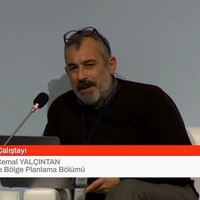
poonam prakash
Related Authors
Mariya Ivancheva
University of Strathclyde, Glasgow
David Seamon
Kansas State University
Remo Caponi
University of Cologne
Asli Odman
Mimar Sinan Fine Arts University
Armando Marques-Guedes
UNL - New University of Lisbon
Laurajane Smith
The Australian National University
Zlata Vuksanović-Macura
Geographical Institute "Jovan Cvijic" of Serbian Academy of Arts and Sciences
Yanina Welp
Graduate Institute of International and Development Studies (IHEID), Geneva
Dr Rabidyuti Biswas
School of Planning and Architecture
InterestsView All (10)









Uploads
Papers by poonam prakash
In India, participation has been part of many urban and rural development projects focusing on service delivery particularly for the poor, since mid eighties. In town planning, citizen participation was mandated in some form in most of the town planning laws in India particularly for plan preparation and modification of statutory plans like master plans and zonal plans from the very beginning. In the past few years, in addition to the statutory requirements for participation other participatory planning practices like stakeholder workshops, open houses promoted by international agencies, which are outside the mandated arenas have captured the attention of the policy makers. There is an increasing cacophony on participatory planning particularly through the form of stakeholder workshops. This form of participation in planning is premised on the argument of taking into account ‘preferences’ of the people and the existing ‘ground realities’.
This paper examines some of these participatory planning practices currently ongoing in Delhi with an objective to understand the institutional context in which these practices operate and the nature of interests served by them. With the help of case examples drawn from city level and local level plan preparation (preparation of master plan for 2021 and ongoing process of master plan review in Delhi, process of change of land use and preparation of local area plans), the paper intends to explore how participatory processes are being used as a mechanism to co-opt technical expertise as well as legitimize political agendas. The paper will explore the purpose, extent and nature of participation at the city and local level.
An examination of some of these practices, points towards process of legitimizing priorities and agendas identified through back-door networks and politics of influence in statutory as well as extra-statutory participatory processes. Secondly, increasing emphasis on extra-statutory participatory processes not only subverts statutory participatory processes, but are more open to manipulation and servicing of market interests.
In India, participation has been part of many urban and rural development projects focusing on service delivery particularly for the poor, since mid eighties. In town planning, citizen participation was mandated in some form in most of the town planning laws in India particularly for plan preparation and modification of statutory plans like master plans and zonal plans from the very beginning. In the past few years, in addition to the statutory requirements for participation other participatory planning practices like stakeholder workshops, open houses promoted by international agencies, which are outside the mandated arenas have captured the attention of the policy makers. There is an increasing cacophony on participatory planning particularly through the form of stakeholder workshops. This form of participation in planning is premised on the argument of taking into account ‘preferences’ of the people and the existing ‘ground realities’.
This paper examines some of these participatory planning practices currently ongoing in Delhi with an objective to understand the institutional context in which these practices operate and the nature of interests served by them. With the help of case examples drawn from city level and local level plan preparation (preparation of master plan for 2021 and ongoing process of master plan review in Delhi, process of change of land use and preparation of local area plans), the paper intends to explore how participatory processes are being used as a mechanism to co-opt technical expertise as well as legitimize political agendas. The paper will explore the purpose, extent and nature of participation at the city and local level.
An examination of some of these practices, points towards process of legitimizing priorities and agendas identified through back-door networks and politics of influence in statutory as well as extra-statutory participatory processes. Secondly, increasing emphasis on extra-statutory participatory processes not only subverts statutory participatory processes, but are more open to manipulation and servicing of market interests.